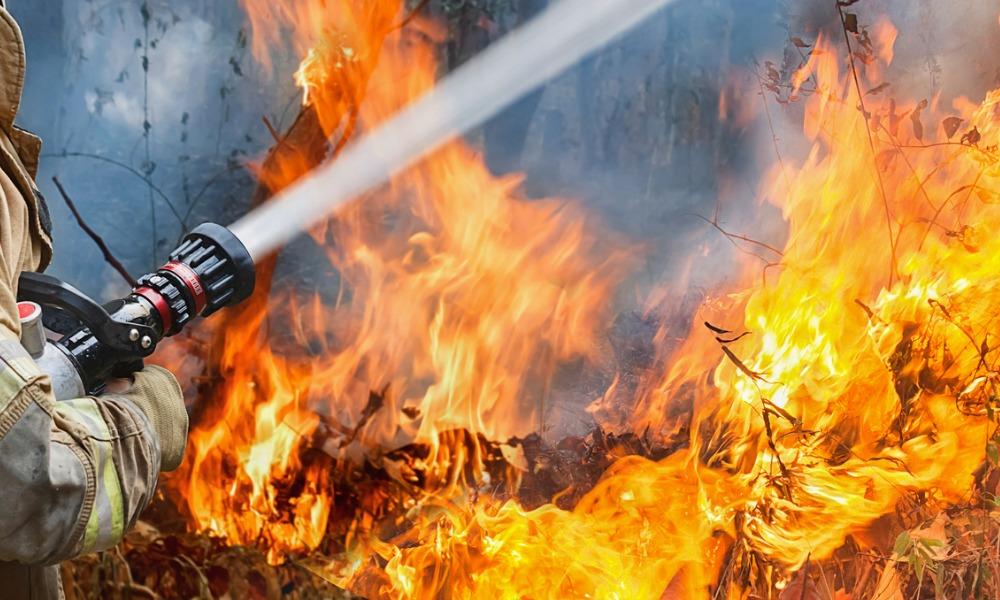
IAFF official calls for better protection of firefighters from wildfires

The International Association of Fire Fighters (IAFF) is calling on governments to invest in respiratory protection for firefighters battling wildfires.
"Currently, when we rely on bandanas and things of that nature to protect our respiratory tracts, we know that there's a lot of ground to cover and hopefully we'll see some products on the market shortly,"' says Neil McMillan, the director of science and research for the Occupational Health, Safety and Medicine Division of the IAFF, in a CBC report.
The increased incidence, frequencies and severity of wildfires across Canada and the lack of speciality protective masks for those on the front lines is a big concern for the group, he says.
“Unfortunately, there isn't a great standard presently for firefighters that have to work in dynamic fire situations, in wildland and wildland urban interface settings in other places across the globe.”
The problem is the lack of standards that focus on personal protective equipment that firefighters should use during wildfires, says McMillan.
"There's no real mandatory requirements for proper respiratory protection that filters out carbon monoxide, volatile organic compounds, and these fine particulates that we know are associated to the diseases that are killing firefighters,” he says in the CBC report.
“We unfortunately bury too many firefighters because of the diseases they acquire from exposures on the fire ground," McMillan says. "We can't put the genie back in the bottle when those exposures happen.”
Recently, Canada gave royal assent to legislation that will raise awareness about cancers linked to firefighting and best practices to prevent these cancers. Under Bill C-224 – An Act to establish a national framework for the prevention and treatment of cancers linked to firefighting – Health Canada will develop a national framework that raises awareness of cancers linked to firefighting and that supports improved access for firefighters to cancer prevention and treatment.
There are some masks approved by the National Institute for Occupational Safety and Health (NIOSH) that have been recommended to help protect wildfire fighters from some smoke risks present in a fire, according to the CBC report.
And a Department of Homeland Security market survey in November 2022 identified 26 air-purifying respirators (APR) and powered air-purifying respirators for wildland firefighters.
One of those devices is the Sundstrom SR10, which is NIOSH-approved to offer both protection against particulates in smoke and a number of vapours and other gases. The design allows for people to stack multiple filters for different conditions, and the B.C. Wildfire Service is exploring it, according to the report.
The B.C. Wildfire Service has also partnered with multiple external occupational health and safety groups to test the feasibility of using the Australian-made Fair Air Fire Mask and the RZ M2.5 Mesh Mask on the ground.
Currently, N95 is the only mask in regular use by its crews.
Alberta has also been participating in a University of Alberta research study with B.C. since 2018, looking into potential health risks for firefighters. The study is also testing several different styles of masks and evaluating them for comfort, durability, how easy they are to maintain and fire resistance.